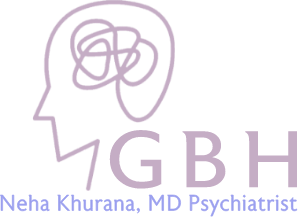Perinatal & Postpartum Depression Treatment and Therapy Norcross, GA
Mental Health Support for New & Expecting Mothers - From Expert PPD Therapists in Norcross, GA
Understanding Perinatal & Postpartum Depression
Motherhood is a transformative experience, but for many women, it also brings emotional challenges. Perinatal depression occurs during pregnancy, while postpartum depression (PPD) develops after childbirth. These conditions go beyond the “baby blues,” leading to persistent sadness, anxiety, exhaustion, and difficulty bonding with the baby.
At Georgia Behavioral Health, our therapists provide specialized mental health care for women experiencing perinatal mood disorders and postpartum depression in Norcross, GA and nearby areas. Our team offers therapy, medication management, and holistic approaches to help mothers regain emotional well-being and enjoy their journey through parenthood.
Signs & Symptoms of Perinatal & Postpartum Depression
- Intense sadness or frequent crying
- Feelings of hopelessness, guilt, or worthlessness
- Difficulty bonding with the baby
- Extreme fatigue, but trouble sleeping
- Irritability or anger
- Loss of interest in activities once enjoyed
- Anxiety, panic attacks, or excessive worry
- Thoughts of self-harm or harming the baby
What Causes Perinatal & Postpartum Depression?
- Hormonal fluctuations after childbirth
- History of depression or anxiety disorders
- Lack of sleep and physical exhaustion
- Emotional stress from life changes
- Difficult or traumatic childbirth experiences
- Limited support system or isolation
How We Treat Perinatal & Postpartum Depression
At Georgia Behavioral Health, our PPD thrapists offer a comprehensive approach to new mother’s mental health, including:
01. Therapy & Counseling
- Cognitive Behavioral Therapy (CBT): Helps manage negative thoughts, anxiety, and mood changes.
- Interpersonal Therapy (IPT): Focuses on relationships and the emotional transitions of motherhood.
- Support Groups for New Mothers: Provides connection and shared experiences with others facing similar challenges.
02. Medication Management
- In some cases, medications such as antidepressants may be recommended. Our providers carefully evaluate each patient to ensure safety for both mother and baby, especially for those who are breastfeeding.
03. Lifestyle & Holistic Support
- Nutritional Guidance: Ensuring proper nourishment to support mood regulation.
- Mindfulness & Stress Reduction: Techniques such as meditation, gentle movement, and relaxation exercises.
- Partner & Family Education: Helping loved ones understand and support recovery.
Perinatal Anxiety & Other Mood Disorders
Beyond depression, pregnancy and postpartum can lead to other mental health concerns, including:
- Perinatal Anxiety: Constant worry, panic attacks, and intrusive thoughts.
- Postpartum OCD (PPOCD): Repetitive, distressing thoughts about harm coming to the baby.
- Postpartum PTSD: Trauma-related symptoms due to a difficult pregnancy or delivery.
- Postpartum Psychosis (PPP): A rare but severe condition requiring immediate medical attention, involving hallucinations, paranoia, or disorganized thinking.
If you are struggling, you are not alone—our team of mental health providers and therapists is here to help.
FAQs About Perinatal & Postpartum Depression
How do I know if I have postpartum depression or just the baby blues?
The baby blues are common and typically resolve within two weeks after birth. Postpartum depression lasts longer, intensifies over time, and interferes with daily life and bonding with the baby. If symptoms persist or worsen, seeking professional support is essential.
